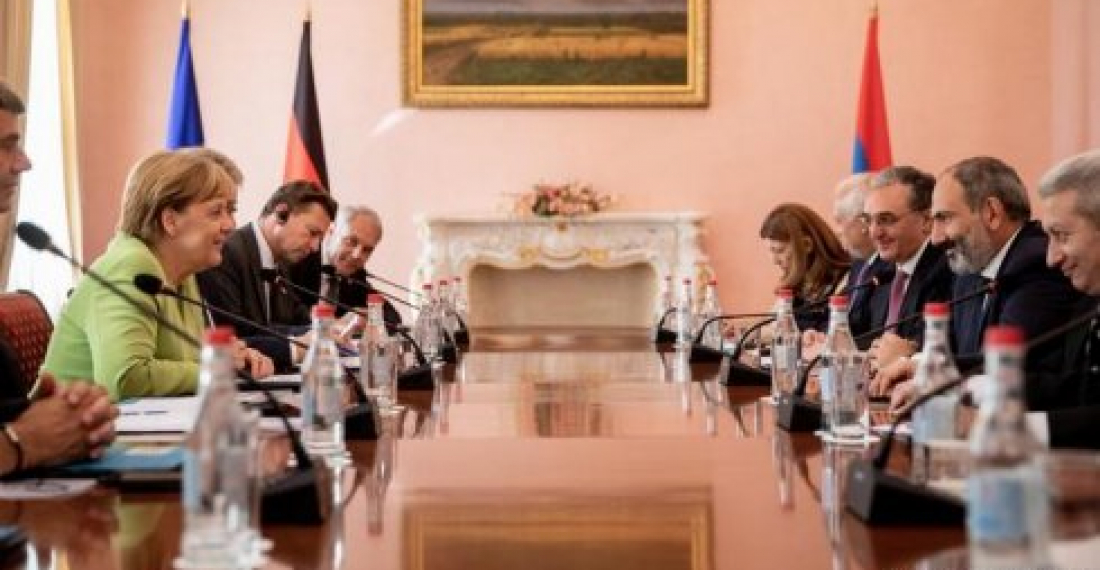German Chancellor Angela Merkel on Friday (24 August) held talks with Armenian prime minister Nikol Pashinyan in Yerevan during the second leg of her visit in the South Caucasus.
Speaking after the talks Chancellor Merkel said she had been watching carefully what was happening in Armenia following peaceful protests there in the spring, and the subsequent change of government. Armenia and Germany can develop cooperation in a number of directions, Angela Merkel said at a joint press conference with Armenian Prime Minister Nikol Pashinyan. The Chancellor said she is glad to come to Armenia not only in the year of the 100th anniversary of the First Republic, but in the period of democratic reforms. Merkel said that she had discussed with prime minister Pashinyan relations between the two countries, and that they had discussed the future of the relations not only in a bilateral format, but also in the format of relations with the EU.
Chancellor Merkel said Germany is ready to encourage the creation of a favorable atmosphere for the settlement of the Karabakh conflict. The Chancellor reminded that Germany is a member of the OSCE Minsk Group. She said the conflict cannot be solved without talks, and it is necessary to spare no effort to resolve it.
Nikol Pashinyan warmly welcomed the visit of the German Chancellor to Armenia, which he said was historical. Referring to Armenia-EU cooperation, Pashinyan highlighted the ratification of the Comprehensive and Enhanced Partnership Agreement, reaffirming Armenia's commitment to the implementation of widespread reforms. The Armenian prime minister said his country attached importance to the EU's targeted assistance, based on the principle "more for more".
Earlier Merkel went to the Tsitsernakaberd hilltop memorial where she laid a wreath at the monument commemorating the victims of what Armenia describes as the 1915 genocide against 1.5 million people carried out as the Ottoman Empire disintegrated during World War I.
According to the German broadcaster Deutsche Welle (DW) "choosing her words carefully in Armenia, Chancellor Angela Merkel avoided using the term "genocide" for the killing of up to 1.5 million Armenians in 1915. She did refer to the Bundestag's resolution two years ago."
DW political editor who was at the ceremony larter tweeted
#Merkel came a step closer but stopped short of using the word #Genocide in #Armenia, referring to the “spirit of” a 2016 German Parliament Resolution that states the killing of up to 1,5 M Armenians was just that. Delicate balance to avoid provoking #Turkey pic.twitter.com/uW9v3KQXUI
— Michaela Kuefner (@MKuefner) August 24, 2018
On Friday evening, Merkel, accompanied by prime minister Nikol Pashinyan and Armenian president Armen Sarkissina went for a walk on Yerevan's Northern Avenue.
On Saturday, Chancellor Merkel will depart for Baku, for the last leg of her visit to the South Caucasus.
source: commonspace.eu with Deutche Welle, Cologne, and agencies
photo: German Chancellor Angela Merkel held talks with Armenian Prime Minister Nikol Pashinyan in Yerevan on 24 August 2018.







